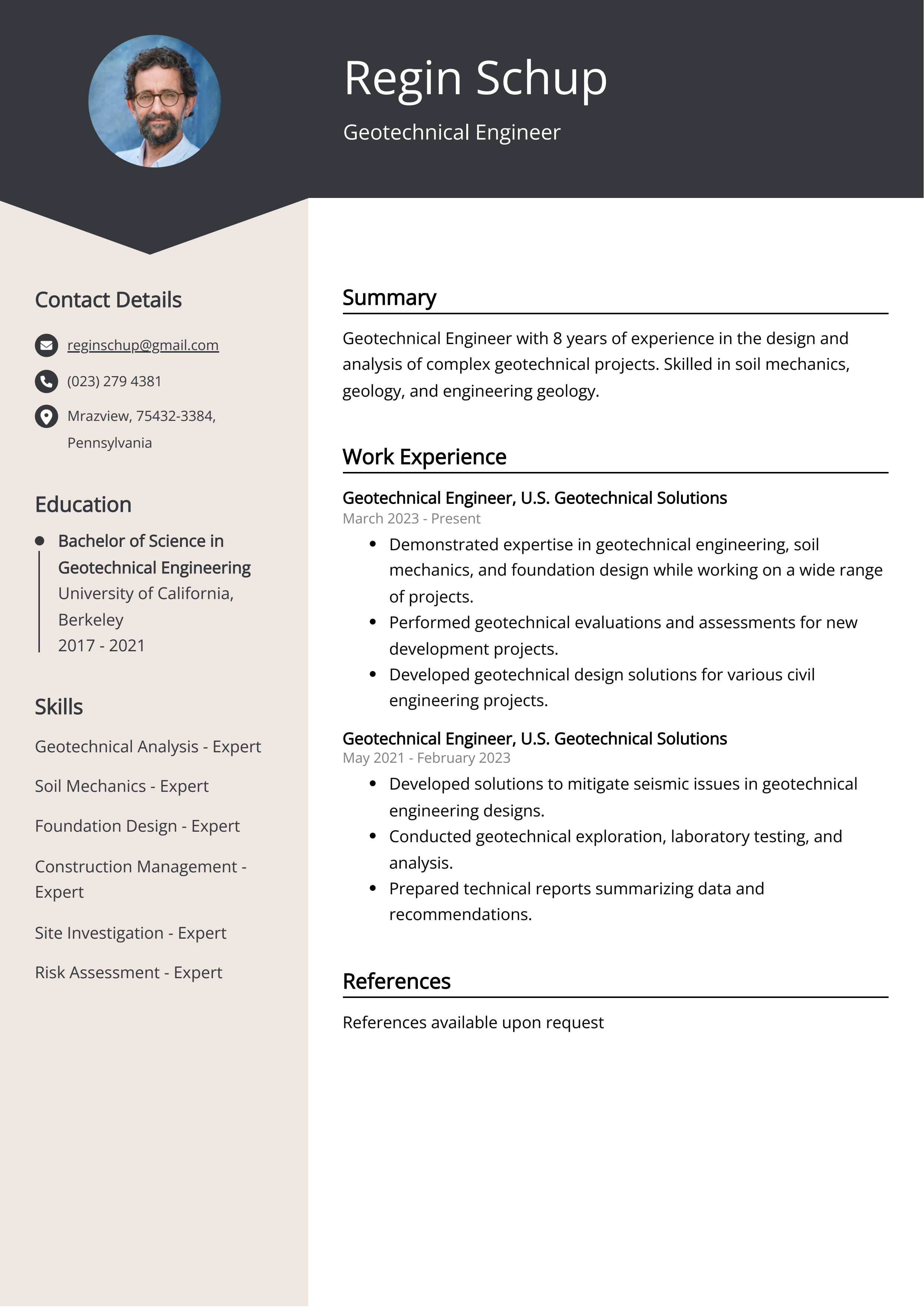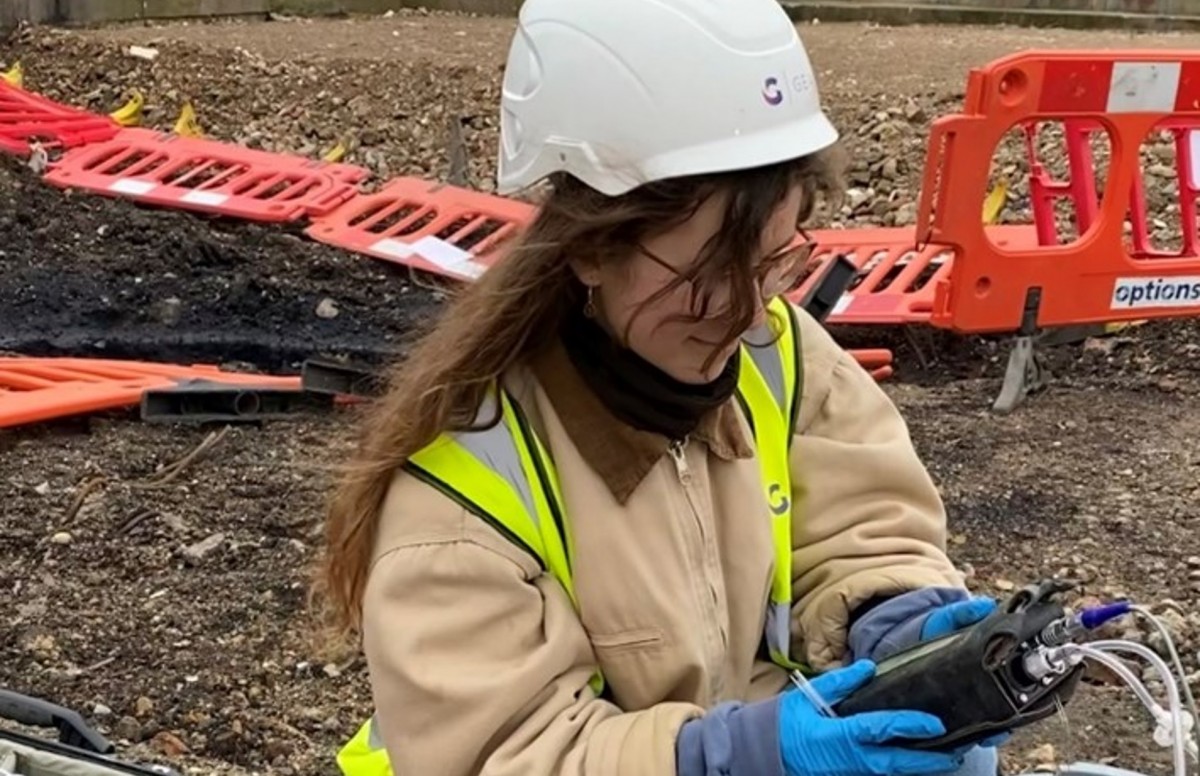Things about Geotheta
Top Guidelines Of Geotheta
Table of ContentsMore About GeothetaExamine This Report on GeothetaLittle Known Facts About Geotheta.Geotheta Fundamentals Explained
They team up with civil designers, structural engineers, designers, and other experts to incorporate geotechnical factors to consider right into the overall task design and construction process. This requires effective team effort, control, and communication to guarantee that the geotechnical facets line up with the project objectives and meet governing requirements.Mining & Products Engineering: Concepts of exploration, penetration prices, and variables affecting the selection of boring method. Qualities of dynamites, firing systems and blast patterns. Blowing up strategies in surface area and underground operations. Special blasting methods at excavation boundaries. Vibration and noise control. Mechanical and continuous techniques to fragmentation, including longwall shearing and fullface boring.
Modelling of fragment and fragment dimension distributions; comminution as a transfer feature. Comminution technology: crushing, grinding, size classification. Integrated analysis of fragmentation and comminution procedures. Provided by: Mining & Products Design.
The Best Guide To Geotheta
Bachelor's level programs in civil, geotechnical, geological, and ecological engineering commonly last four years and include basic education training courses in English, social science, and the liberal arts, along with programs in advanced mathematics, architectural geology, and liquid mineralogy. (https://slides.com/geotheta)
Geotechnical engineering includes the evaluation of the soil and rock conditions at a certain site, and their effects for the development of that website. As the majority of frameworks depend on the ground for support, it is without shock that an in-depth understanding of the ground problems, and the viability of foundation systems, are important to the long-term security and performance of the structure or framework.
Being experts in the investigation of geological formations and ground behavior, geotechnical designers perform scientific examinations and testing to understand the impact these geological developments might have on the layout and construction of building, civil and framework jobs. This know-how is crucial for the style and building of structures, roads, passages, dams, bridges, and water system and sewage systems.
The geotechnical group at Douglas Allies regularly speak with engineers, style designers, designers, and building contractors to make suggestions on design and development proposals to guarantee that the developed structures are appropriately designed for the ground problems. The layout of footing systems requires to consider the weight of the structure, the capability of the ground to sustain that weight together with activity resistances and effective construction.
All About Geotheta
This job is considerably simplified by the use of our Douglas Map geospatial system which makes this information readily obtainable in a simple to use web internet browser interface. A geotechnical engineer will certainly guide the exploration of boreholes and examination pits to collect soil and various other samples, and additionally evaluate surface area features and ground direct exposures to create a geotechnical model of the subsurface problems.
Depending on the project kind and ground conditions experienced, lab testing may to name a few points evaluate toughness, compressibility, reactivity and/or leaks in the structure of soil and rock examples. Hereafter data is collected and looked at, the results are used for a geotechnical model of the website, which is normally offered as sections throughout the website.

A geotechnical investigation naturally can only evaluate the ground problems at the places pierced or dug deep into. Natural variants in soil and rock problems can take place across a website and between test locations. It is therefore good method that the geotechnical designer be kept throughout construction of the project to provide on-site confirmation that the ground problems experienced click this link are regular with the expectations and guidance provided in the geotechnical investigation report.
The 45-Second Trick For Geotheta
Geotechnical engineers utilize their in-depth understanding of dirt and rock to assess risk and fix issues on diverse infrastructure projectsGeotechnical engineering is a specialist branch of civil design which looks at the behavior of planet products and the application of soil and rock technicians. Geo Tech Engineer. As a geotechnical designer, you will evaluate the physical, mechanical and chemical residential or commercial properties of dirt and rock in order to create foundations, retaining structures and earthworks
Geotechnical design is closely connected to and overlaps with, both design geology and ground design - https://moz.com/community/q/user/geotheta?_gl=1*xkyvtd*_up*MQ..*_ga*NjU0Mjk2NzIxLjE3MjI2MDU1Nzc.*_ga_DS7K9Q3S5W*MTcyMjYwNTU3Ni4xLjAuMTcyMjYwNTU3Ni4wLjAuMA... It's feasible to be experts in geotechnics or benefit a geotechnical company yet be understood as an engineering geologist or a ground engineer. As a geotechnical engineer, you'll require to: develop and keep partnerships with clients and various other professionals involved in the site, throughout each projectmaintain security requirements on website be mindful of price ramifications when you make recommendationsstudy geological maps and aerial photographs from an array of sources and from various time periodsexamine building and construction plans to see just how viable they are based upon your understanding of the siteinvestigate risks or geological hazards for the sitesearch for eco sensitive features, such as land fill beginning to create valid and expository ground modelsplan area investigationsdrill and evaluate examples of bedrock, dirt, groundwater and extra materials supervise various other specialists on sitesolve technical problems as they occur, such as unforeseen structures at drill sitesmonitor conditions throughout and after construction to ensure structures are stable in the brief and long termadding information accumulated on website to your preliminary researchcreating geotechnical estimations, drawings, and two or three-dimensional computer system models interpreting the datamaking suggestions concerning the proposed usage of the site
